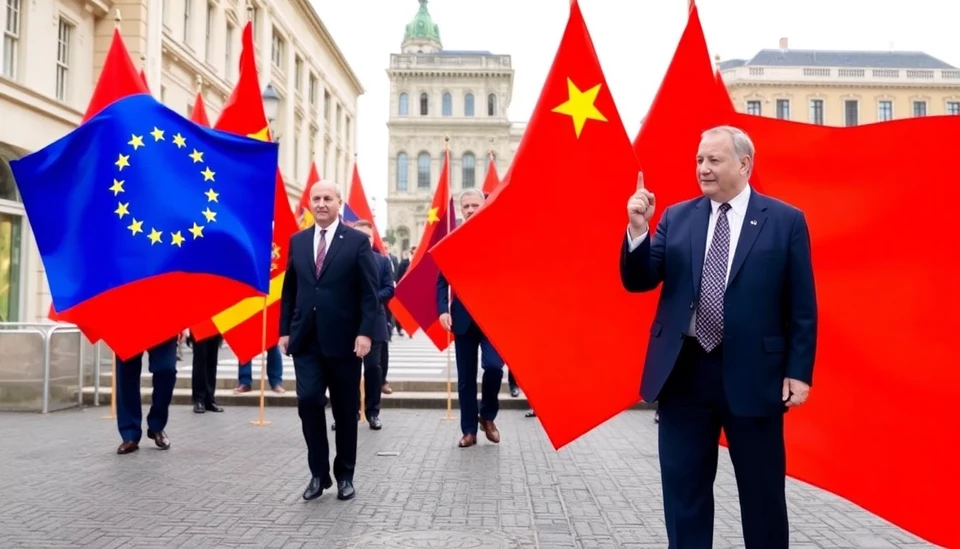
In a bold move to recalibrate trade strategies, Spain is urging the European Union (EU) to forge closer economic ties with China as a direct response to the escalating tariffs imposed by the Trump administration. This strategic pivot comes as European leaders assess the growing tensions between the United States and China, which have significant implications for global trade dynamics.
Spain's push for a more harmonious relationship with Beijing is rooted in the country's desire to mitigate the adverse effects of the Trump tariffs, which have targeted numerous products from Europe. The tariffs have not only disrupted market access but have also placed considerable strain on Spain's export-dependent economy. Spanish officials believe that a deeper engagement with China could provide a much-needed avenue for growth and stability amidst a turbulent international landscape.
During a recent discussion among EU members, Spain highlighted the opportunities that a strengthened partnership with China presents, particularly in terms of investment, technology exchange, and market diversification. The Spanish government is advocating for initiatives that promote bilateral trade agreements aimed at reducing dependence on the U.S. market and enhancing cooperation on critical areas such as renewable energy and digital innovation.
However, this proposal is not without its challenges. Spain is well aware of the apprehensions that some EU member states have regarding China's growing influence. Concerns about human rights issues, intellectual property theft, and geopolitical ambitions may hinder the overarching goal of creating a unified EU stance. Nevertheless, Spain's leadership argues that the risks of isolationism are far greater than engaging with a country that is rapidly becoming a dominant force in the global economy.
Economic experts have weighed in on the ramifications of this potential pivot. While there are prospects for increased trade flows, analysts caution that reliance on China could expose European economies to vulnerabilities, especially given the ongoing discourse surrounding national security and economic sovereignty. Spain aims to navigate these complexities by advocating for comprehensive strategies that not only open avenues for business but also ensure that the EU retains its core values and strategic autonomy.
The dialogue around this proposal is expected to intensify in the coming months, particularly as EU leaders prepare for critical summits addressing global trade policies. Spain's initiative is a clear indication of a shifting perspective within the EU, one that underscores the need for adaptability in a rapidly changing world. The outcome of these discussions could very well shape the future of trade relations not just between Europe and China but also how the EU positions itself against the backdrop of fluctuating U.S. policies.
As Spain takes the lead in this discourse, it remains to be seen whether other EU nations will rally behind this call for change, or if resistance will prevail. Regardless of the challenges, the message is clear: Spain believes that embracing a partnership with China is essential for ensuring economic resilience in the face of rising global tensions.
In summary, Spain's commitment to advocating for a more robust EU-China relationship reflects a strategic response to external pressures, aiming to secure a prosperous economic future amid the uncertainties posed by current political climates.
#Spain #EU #China #TradeRelations #TrumpTariffs #EconomicPolicy #GlobalTrade #InternationalRelations #EUChinaRelations
Author: Sophie Bennett




